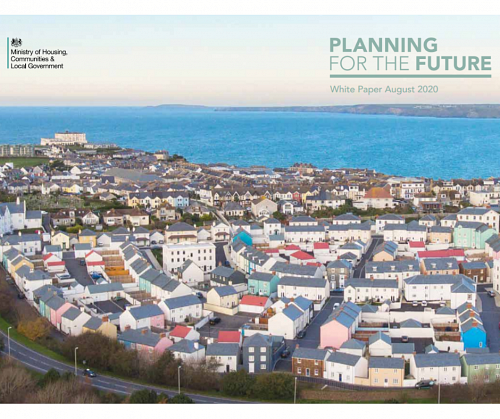ACRE’s Response to the Planning White Paper
As the leading national charity representing rural community interests, we have taken a keen interest in the government’s proposals to radically reform the planning system.
When the Planning White Paper was announced in August, we set out several questions we would be asking of the proposals to see whether they have potential to secure the homes, jobs and services rural communities need to thrive and whether they provide opportunity for the people living in these communities to shape this development and move to net zero carbon living.
Having consulted extensively with members of the ACRE Network, we have come to the conclusion that the reforms will have a detrimental impact on many rural communities.

In our formal response to government, we drew attention to the following concerns.
1) Zoning will undermine rural communities ability to thrive
The proposals for zoning are too crude to be responsive to the diversity of rural communities and land uses within them. For some, the proposals will see them swamped by new development. But the large majority will be in protected zones where the NPPF will dictate a restrictive approach to development.
2) Rural residents will lack a voice in Local Plans or planning applications
The ability of rural residents to shape development in terms of scale and type will be lost. The Planning White Paper’s warm words about increasing community engagement seem hollow when set against its proposals to exclude residents from planning decisions on individual developments. Up-front community involvement in Local Plans is a principle we support, and digital solutions can have a role in this. But where does this leave rural residents with poor internet connection and limited mobile coverage and those without the knowledge or capacity to use it? Our experience underlines the point that inclusive engagement requires time, deliberative conversations and good facilitation to ensure all parts of the community have an opportunity to be heard.
3) Neighbourhood Plans will be reduced in importance
Neighbourhood plans, when based on thorough and inclusive engagement with the whole community, are an important means by which rural residents can shape the future of their area. But rather than building on this experience, the Planning White Paper diminishes their importance to essentially Design Guides. No longer will neighbourhood plans be able to allocate sites and include policies by which the community can ensure development meets their needs.
4)Delivery of new affordable housing will be curtailed
The proposed Infrastructure Levy will weaken the ability of local authorities to meet the need for affordable and specialist housing in their area. There is nothing in the proposal that will prevent affordable housing being squeezed out of a development because of the new infrastructure requirements. And because the levy is set nationally, this does not account for local market conditions which may affect the financial viability of a scheme and its capacity to provide affordable homes. We are concerned this will have a particular impact on smaller developments and those in low value areas where it is unlikely any affordable homes will be delivered. Taken together with the proposed abolition of Section 106 agreements which retain affordable housing in perpetuity for local communities, it is difficult to see how rural areas will be able to secure homes that are within reach of many households, particularly the those on lower incomes.
As a general observation, we also note the Planning White Paper lacks detail with respect to many proposals which suggests there is a long way to go.
ACRE will continue to provide a voice for rural communities on this matter, drawing on the experience and knowledge of our members in the hope we can encourage government to address these concerns.
If you share our concerns, we encourage you to write to your MP using our notes above with some explanation about how these changes will affect your community. You can find contact details for your MP here.


